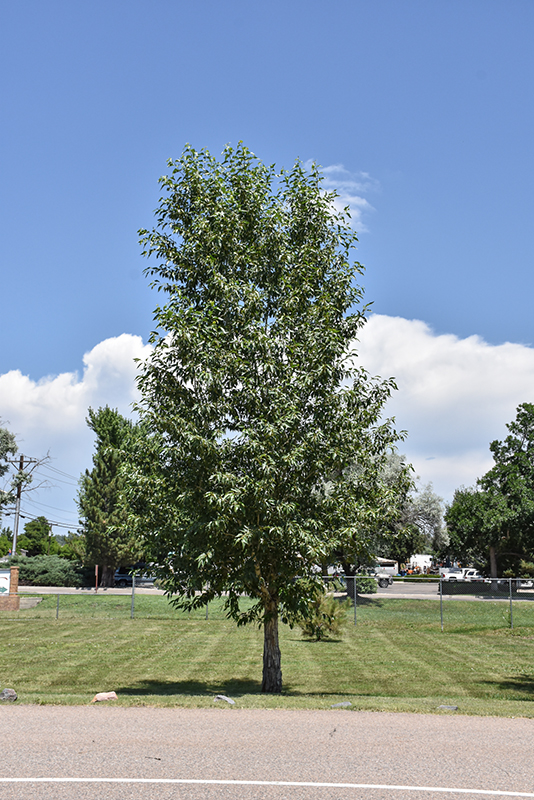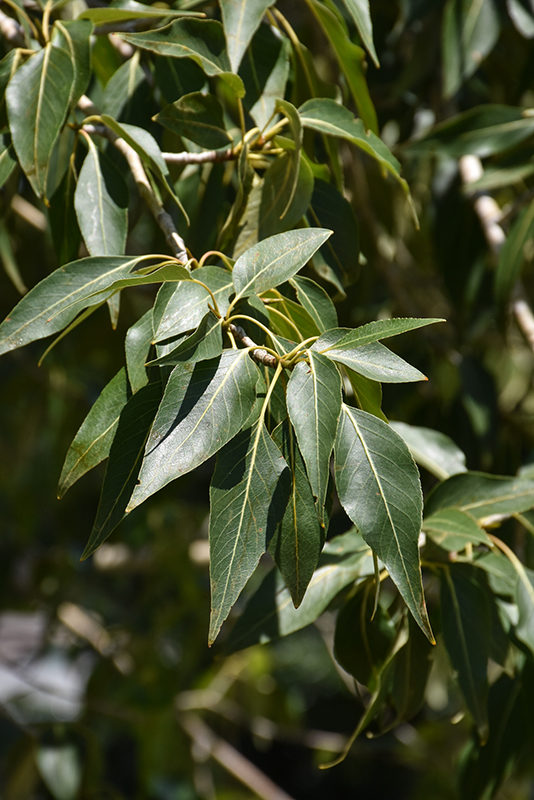Height: 50 feet
Spread: 40 feet
Sunlight:
![]()
Hardiness Zone: 3a
Other Names: Narrowleaf Poplar, Mountain Cottonwood
Description:
A narrowly conical, upright and fast-growing tree that's tolerant of wet growing conditions; narrow, willow-like leaves are less susceptible to disease; aggressive root system, so don't plant near the house; makes a fine windbreak or quick shade tree
Ornamental Features
Narrowleaf Cottonwood is primarily valued in the landscape for its ornamental upright and spreading habit of growth. It has attractive forest green foliage with grayish green undersides. The small glossy narrow leaves are highly ornamental and turn outstanding shades of yellow and in the fall.
Landscape Attributes
Narrowleaf Cottonwood is a deciduous tree with an upright spreading habit of growth. Its relatively fine texture sets it apart from other landscape plants with less refined foliage.
This tree will require occasional maintenance and upkeep, and is best pruned in late winter once the threat of extreme cold has passed. Gardeners should be aware of the following characteristic(s) that may warrant special consideration;
- Disease
- Self-Seeding
Narrowleaf Cottonwood is recommended for the following landscape applications;
- Shade
- Vertical Accent
- Hedges/Screening
- Windbreaks and Shelterbelts
Planting & Growing
Narrowleaf Cottonwood will grow to be about 50 feet tall at maturity, with a spread of 40 feet. It has a high canopy with a typical clearance of 6 feet from the ground, and should not be planted underneath power lines. As it matures, the lower branches of this tree can be strategically removed to create a high enough canopy to support unobstructed human traffic underneath. It grows at a fast rate, and under ideal conditions can be expected to live for 60 years or more.
This tree should only be grown in full sunlight. It is quite adaptable, prefering to grow in average to wet conditions, and will even tolerate some standing water. This plant does not require much in the way of fertilizing once established. It is not particular as to soil type or pH. It is highly tolerant of urban pollution and will even thrive in inner city environments. This species is native to parts of North America.


